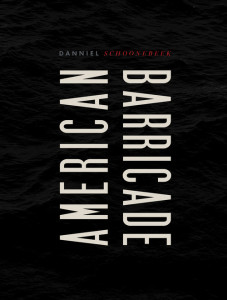
Up Against a Wall: A Conversation with Danniel Schoonebeek
by Joseph Thompson
Think of animals. Everyone knows not to approach a wounded one. Better yet, think of yourself. How good is it to take your hurt out on someone else? Anne Carson sums it up neatly, “Why are you full of rage? Because you are full of grief”(Grief Lessons) While Carson is prefacing ancient Greek tragedy, the poems that make up Danniel Schoonebeek’s 2014 debut, full-length collection, American Barricade, spring from the same seed, full of rage and grief. While there is a fundamental simplicity to his book, Schoonebeek has managed to notice more and carve out more on well-worn trails. His poems reach deep into the wound created by the failures of persistent myths of American values, especially those that protect its financial systems, to find that what we mean when we say economics is heard in the taproot of the word: oikos. Family. Home.
Keep in mind that nostalgia is a wound. Looking back injures us. And the eternal return is always to family. But this is right where Schoonebeek wants to be. (You get the sense while reading that he does his best fighting when he’s backed into a corner.) The thoroughfare of American Barricade is a series of under-exposed poems called “Family Album.” Each poem addresses or is an emotional response, simple reflection, memory itself, or just imagery triggered by what one can only assume are photos that exist in the literal attics of Schoonebeek’s past. Several images of disappointment emerging from the broken promises felt in financial crisis, joblessness, sex and sexlessness, have their antecedents in father, mother, sister, brother. As he traces his family tree in the poem, “Lullaby (Coup),” his ancestors make one statement over several generations: “One word is all you’re allowed to take with you when you come to rule the state the first fool through the gate he took king the fool after him he took you.” Here is a poignant indictment of the failed relationship between home and country. To ask the question seems pedantic, but the wordplay is poignant and anticipated: what would be different in a different order?
There is something unfair about American Barricade. Everyone knows not to approach a wounded animal, but how would you ever know what you’d be getting into when you picked up the book? Yet, Schoonebeek is not fighting with you as much as he has invited you to watch. While the voice is vicious and threatening, seething through its teeth, there’s something of a trick: its first word is silence. “Men loyal first off to silence run in my family.” is the first line of the collection, establishing that, despite public-ation, the pain and outrage that stretch into new shapes through the diction of the poet live most of their lives in the private deafening rests between major movements.
More importantly, Schoonebeek points to a trailhead into stability within the contradictory paradigm of life these days. The majority of the book places great distance between himself/the poet, his family, and his country. Yet, he claims refuge in the family-negative template of friendship and art. He closes the book with gentle, polite, pleading. “My friends will you hound me like a hook in my mouth stay with me.” In the same poem, he evokes Brueghel instead of the 3”x5”s or the polaroids of the family album. Instead of the candid, the deliberate. And although it is not a new suggestion, Schoonebeek renews the categorical imperative of reviving a natural conscience. [He is fascinated with the admixture of the world we occupy, natural and unadorned (“a bee/stumbles out of a bluebell”) and the occupation itself (“I remember black bags were caught/in the honeylocust branches”).]
These suggestions shy away from any universal application. Rather, they are personal, as are all of these poems. Which is why there is little reason to maintain an academic distance and refer to “the poet” in discussion of this book. Schoonebeek is fighting to stay on the page. As a result, American Barricade becomes a touchstone for what could become a new generation of style and theme in American poetics.
Danniel and I exchanged emails for nearly a year.
Joseph Thompson: My first encounter with your poetry was “A Woman in the Sun,” which is a beautifully quiet and slow (but impatient) poem—kind of like a punk eclogue with a little bit of David Lynch. I was pretty surprised, and a little put off at first, by the different pace and volume of the rest of American Barricade, which amps up that impatience and kind of seethes through its teeth for most of the book. These elements provided a different context for “A Woman in the Sun.” I thought that might be a good place to start: to see if you could help readers by providing a little more of that context to help situate this collection?
Danniel Schoonebeek: Barricade was written under various states of duress. I wrote one poem while my roommate was trashing our apartment, occasionally beating on my door with a wrench. A handful of poems were written during work hours on Madison Avenue. The book started to cement into place during the protests in New York and California. The fact of a barricade never really left me for a few years. Maybe that's why the poems seethe through their teeth. I do think they're poems up against a wall, fighting their way through the teeth. And they're protesting the duress inside of which they were written. That's why some of the poems are convulsive, unwieldy, raw, kind of writhing. And others are gagged by their grammar. Some poems are behind a barricade, some are pushing through one. "A Woman in the Sun" was whittled away from about five pages over a number of years. Part of the duress of that poem is formal, I think, same with a lot of poems in the book. Each line of the poem is pushed apart, kept away from its other half, the white space is a barricade.
JT: More than the tang of poems up against a wall, as you described, there's a flavor of suffering injustice throughout the book. It's nice that the poems fight back, but it's unclear, at least on the surface, what they're fighting against. It seems that that duress is more skeletal, part of the hidden structures of the poem. Like the grammar and the punctuation. You mentioned in other interviews that you loved when punctuation was absent. But in the opening poem, "Genealogy," and in others (“Telegram,” “Horoscope,” “Thimblerigger”), you're entertaining the opposite effect, overworking punctuation, particularly the period. I thought this had a delightfully playful effect, kind of like being in a house, turning a corner and finding a door instead of a hallway. Over and over and over. Again, this idea of barricades that requires the reader (not the poem) to break through. Was this meant to be an exercise in frustration rather than play? And how does this barricading really find itself first (both in place and in importance) with family, ancestry, and the false full-stops found therein?
DS: I have below zero interest in play. But one of the obsessions of these poems is the eternal return of American narrative, which is playful. These obsessions happen in different ways: repeating the same words, the same phrases, meeting the same adversities, the same obstacles. Probably the smartest commentary anyone's ever made about me as a poet is that I'm a forager. Meaning my poems gather their materials, establish their laws, and then go about the work of distorting those laws, breaking them down and changing them by way of returning to them over and over. Which is what the end-stops are doing in poems like "Genealogy." I'd use the word agitation instead of frustration, they return to the same shut door over and over again. The full stops are meant to be false starts. In Melville, Bartelby is a great moment in the literature of protest because he's not a hellraiser. He meets a fundamental misalignment with his being when he's told to work for money, and in protest he essentially shrugs his shoulders and says meh. It's a privileged response really, and one of the reasons I think that character endures is because he's problematic. And Camus's Meursault endures for the same reason. They're troubling figures because we recognize that their essential characters are also walls that they have to kick over. And both of them do. It ends up killing Bartelby, it ends up saving Meursault in his own way, though he's executed about ten minutes later. And I think the voice of these poems has to protest against itself, die in its own way, in order to arrive at liberty.
JT: I like that you bring up that idea of self-confrontation that a poem has to go through and that suggests that there's some element that the poet is not in control of as the poem turns around to meet itself in the hands of the reader.
This seems particularly true in the poems that make up the series, "Family Album," which make up the skeleton of American Barricade. The images that project behind these poems are pretty easy to conjure up since they are part of a common narrative: the clothing (“suede/dumpster shoes”), siblings being born (“can we/keep him/can son/name him”), at the fair (“son won/a slow/county/sow not”), etc. Yet, the reality is in the differences that hang on that skeleton. That is, the truth about every family lives outside of the family album or in the differences between the moments captured on film and the context that they live in. I'm wondering if it's in that tension, that difference, that the poem (like the subjects of the portraits) is posed with kicking down its own wall? Is every portrait a false start, a way to stop time in order to start it over from that point on? Is that why we keep family photos in albums and return to look at them again?
DS: A book has a fourth wall, doesn't it, in the same way that a stage has a fourth wall. You've got your spine, your two covers, and the fourth wall of the book, like the stage, is the final one, the one between you and the person. But I've never felt like reading a poem is like watching a person talk into a camera. To me poetry always feels like watching a person articulate a stance, some position they've struck, part of a soliloquy maybe. When it comes to those poems, I wanted it to feel like you were eavesdropping on someone else's life, like you were staring at a photograph you didn't take. The reader is the surveillance, like that.
JT: Talk to me a little about collaboration. In your notes, you mention that some of these poems are results of collaborations with Mandelstam and Lorca. But you also mention that other poems have simply lifted lines from various sources. What makes one effort a collaboration and the other effort simple allusion? And what justifies calling the work of the former collaboration? The skeptic would say that, at best, you're working at the same goal(s) as the dead predecessors who you call colleagues and it is merely presumption to say you're working with them. Yet, I think there's plenty of the poet present in any poem, so that allusiveness can realistically turn into partnership. Taking a cue from your idea of a book having a fourth wall, I suppose it would be like if you, the reader (and eventual poet), climbed on Mandelstam's or Lorca's stage to join in their efforts. Thoughts?
DS: Collaboration makes a person so terrifyingly aware of the infinite number of ways the art that he makes isn’t his own. I write a series of collaborative poems, called Torch Songs, with poet Allyson Paty, and every time she passes me a draft there's this moment of shock. Being that close to the way another writer works, seeing their leaps and language shake out, it’s a terrible feeling for me. A good terror.
Sometime about two years ago maybe I had a lapse. If people ask me if I believe in ghosts I get a little riled. Do you believe in not-ghosts? I was reading Lorca and Mandelstam heavily at the time, and the way I felt reading them fucked me up. The poems are beautiful, but I had this physical feeling that both poets are still alive, living in my city, up and about and eking out a living. I told myself I was losing my mind and then I told myself I wasn't. A vision is a vision, why try to put it in a stranglehold?
With people like Mayakovsky, or Berrigan, or Emma Lazarus, or Charlie Feathers, I have a crater in me when I interact with the work, but I don't feel them living. I’m not sick from them. This makes them notes as they appear in the work, not collaborators.
With Lorca, to this day I feel like he's wearing a crappy suit and walking around Bushwick. It's hot, he's trying to kill time, he's anxious. He gets a haircut, he has very dark hair. That's what I see and that's the voice of the poems. It was a small crisis, because the poems are translations in some parlance, but I feel like a toilet person using that word, I don't speak Spanish or Russian. I think a lot about Imitations, a book of Lowell's that I don't ever hear anyone talk about. Everyone hates that guy, it’s hard not to. But the book infuriated people when it came out. And I think somewhere inside of that fury I've also started calling these poems abstract collaborations. I won't stop calling them collaborations, ways of returning to the same pump over and over again. Only sometimes the pump changes.
With Mandelstam, he's always sitting on a bench somewhere that looks like the East River. He's aging, very cold. He's muttering to himself. He doesn't move, he's never moved. Really I've stopped telling myself that either man is not undead.
JT: Faulkner's "The past isn't dead. It isn't even past."
But it makes me wonder about the precedent that now exists—who isn't not undead? Komunyakaa? Olds? Schoonebeek? Do I get to collaborate, work with, these at will? Sure, of course. No one can stop me. Until I publish? Or can I put it this way: there are two things: 1.) walking into the garden that someone else planted in order to weed, to replant, to change the color palette or rotate the crops; 2.) seeing someone gardening and kneeling next to them, uninvited, and telling them what they really want is Peonies, not Posies. What's the difference?
You mentioned regime and I think this has a lot to do with this question of collaboration, and this line of inquiry stabs at this collaborative spirit and finds the open wound of American Barricade: how is it possible to be a people with a negative ethos, collaborating because of a common negation, i.e., the protest community? Furthermore, and more pointedly, when you measure the appropriateness of poetry, of poems, as a lingua franca of this population, how does it stand up?
DS: For me it's always important to bury or blur the false thread that you tell yourself exists between you and the other person—living writer, dead writer, gardener, grandmother, collaborator—to cover it with leaves, in a way. When I write some of the Mandelstam collaborations, I record myself reading his poems and then pile distortion, pitch shifts, a little static onto the recordings until they're no longer decipherable. They start to sound like black box recordings. You'd never in a million years know that Mandelstam had anything to do with these poems. And that's what I mean about covering the thread with leaves. Mandelstam's life, and his poems, have nothing to do with me. But when I read the work he feels like he's breathing somewhere, and I don't want to deny or sleep on the energy and terror in that feeling. So I built a form where that energy and terror are present when I work on the poem.
Some of the greatest protest art I can think of isn't even necessarily political to me. Again, Bartelby lying down on the floor because capitalism is so uneventful. Or that scene in Network where everyone throws open their windows and yells I'm mad as hell. Or The Clash covering "Brand New Cadillac" by Vince Taylor & The Playboys and turning a surf standard into a death romp. In poetry there's "Howl," of course, and so many of the people-watching poems of William Carlos Williams. And so often to me the best Dickinson poems feel like protest poetry. But we have to also talk about Tsvetaeva and Mayakovsky, and the last couple of Paul Thomas Anderson films, and Kirill Medvedev, and Ted Leo, and Claudia Rankine, Dorothea Lasky, Ana Bozicevic, Sarah Kane, Tilda Swinton, Commune Editions, Brigit Peegen Kelly. All of these artists incite something in the public that hears and sees and reads them. And each of them whittles negative energy into another kind of energy. I don't know that I'd call it positive energy. I'd maybe call it the energy of grief and occupying a body that's forced to work. So appropriateness isn't part of the question for me. Because the protests against grief and occupying a body and work that these artists have created is itself the bridge language for me, English be damned.
JT: Can you evaluate the way in which your poems in American Barricade speak (or fail to speak) to what's outside, to whatever is not-America? Your poems are bodyslamming against borders and rigid artificial boundaries, but I'd like your reflection on how you included images of what's beyond borders in this.
A little context: I've been thinking about how we, America, seem to be involved everywhere and I don’t know what’s local anymore. But that’s not even it. It’s more like everywhere keeps creeping into my knowledge and subsequently I have a kind of responsibility. The cultural exchange rate is highly inflated and I feel like I'm on the losing side of that exchange, unable to pay up.
DS: It's important to me, especially in interviews, to state that I think America is a misnomer. Putting aside that we shouldn't even be named after Vespucci (or anyone for that matter) the United States aren't all of the Americas, but it's like we hardly believe that in this States. I wanted to work from inside that failure, where calling anything American is both necessary and ridiculous.
I landed on this title, American Barricade, because it touched upon that weird dynamic: how good it feels to say "American" like it's yours, and then you immediately clash with yourself after saying it. It’s like dry tongue, the word itself is a kind of barricade. It marks an entryway, a path through the trees, but it also bars you from that entry.
Poetry written outside of America is so important to me that I do hope the poems in this book push outside their borders. There's poems like "Ulitskaya" that are specifically about the dangers Russian journalists face simply by being journalists, but I can also look at these poems and see so much international dialogue in them. Specifically with Vasko Popa, ancient Japanese poetry, Mandelstam and Tsvetaeva and Akhmathova and Mayakovsky, with Paris's literary history, call and response songs that belong to African traditions and African American traditions.
I want the book to depict, and sometimes even satirize, American self-obsession and the ways in which we indulge ourselves in our misnomer. But I do hope the poems, the way they're built at least, make themselves part of the world conversation. One gets so bored with the U.S.A.
JT: I'm suspicious of your critique of self-obsession, not because I think you're inaccurate, but because I have often had to kick myself out of the solipsism of boredom with the USA. Isn't boredom self-absorbed? If so, then what's the solution? Is dissatisfaction a catch-22? I don't think so. I think that you're right to not only peek over the barricade, but to cross it regularly to visit the literature of other lands. But isn't there a double standard there when what is so enticing about these visits is in virtue of the national context in which they developed their imagination and craft? I don't want to dismiss your boredom, but wouldn't it be more accurate to say that American Barricade is kind of alarmingly indicative of the sentiments and undercurrents of distress, of alienation, of shame, and yes, boredom with the national context in which it was developed and crafted?
DS: I was riffing on a Clash lyric, which is a habit of mine, the full couplet of which is: “I'm so bored with the U.S.A. / but what can I do?” A lot hinges on that question, and I think the poems in American Barricade ask that question over and over again or venture an answer to it. And they get the answer wrong and try again. Or buckle under the question or try to topple it over. The question itself becomes this burial ground.
It's a kind of conscious attitude. Because the U.S.A. is one of the least boring ideas in the world, at least on paper, and that's exactly what we seem to want from nationalism. To be the center of the boring universe. To have all the soldiers and pop music and sporting events and blockbuster movies and our poetry scene. So it's fun, kind of pissy and campy at the same time, to adopt the attitude of one who's bored with the U.S.A. It's like how dare you, you can't tire of paradise. And it's even more interesting when you start outright calling Americans losers.
I wish I could say I don't get bored. Boredom was this kind of anathema when I was a tween listening to new-era punk. "Boredom won't get me tonight," it was this kind of chant. And like it or not, that's been a huge part of my poetics, that protest. I think of that scene in The Shining where Jack Nicholson is throwing the ball against the wall of the Overlook. It's not a bored, incantatory bouncing like we see in a lot of art. He's really throwing it and it's getting knocked back at him. Sometimes I think of each poem in Barricade as one of those tosses. Which makes the wall America as we know it. But Jack isn't me, Jack is the barricade too, and also me, and we’re both statues that demand to be knocked over.
--------------------------------------------------------------------------------
About the author:
Danniel Schoonebeek’s first book of poems, American Barricade, was published by YesYes Books in 2014. It was named one of the year’s ten standout debuts by Poets & Writers and called “a groundbreaking first book that stands to influence the aesthetic disposition of its author’s generation” by Boston Review. His work has appeared in Poetry, Tin House, Iowa Review, Fence, BOMB, The Brooklyn Rail, jubilat, and elsewhere. The recipient of awards and honors from Millay Colony, Poets House, Oregon State University, and the Juniper Institute, he hosts the Hatchet Job reading series and edits the PEN Poetry Series. In 2015, Poor Claudia will release his second book, a travelogue called C’est la guerre.
About the interviewer:
Joseph Thompson is a school administrator in Los Angeles, CA. He occasionally writes.
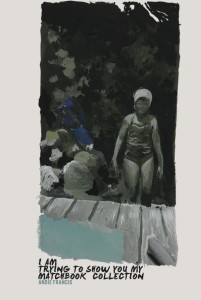 "Matchbook?" Who do you read? What have you been reading lately? Do you generally read while in the midst of a project?
"Matchbook?" Who do you read? What have you been reading lately? Do you generally read while in the midst of a project?
























































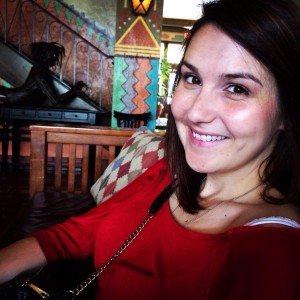
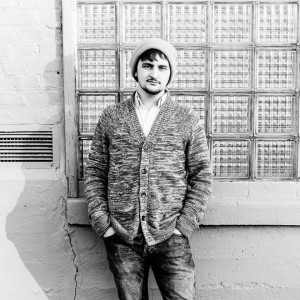
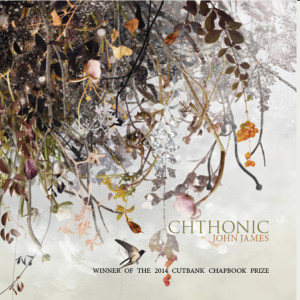

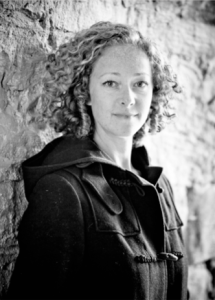
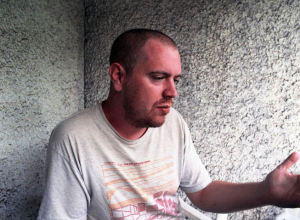
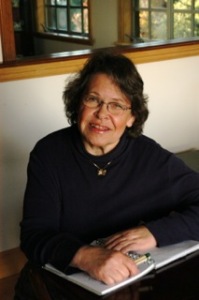


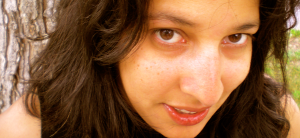

 CUTBANK: What are you doing for the conference?
CUTBANK: What are you doing for the conference?

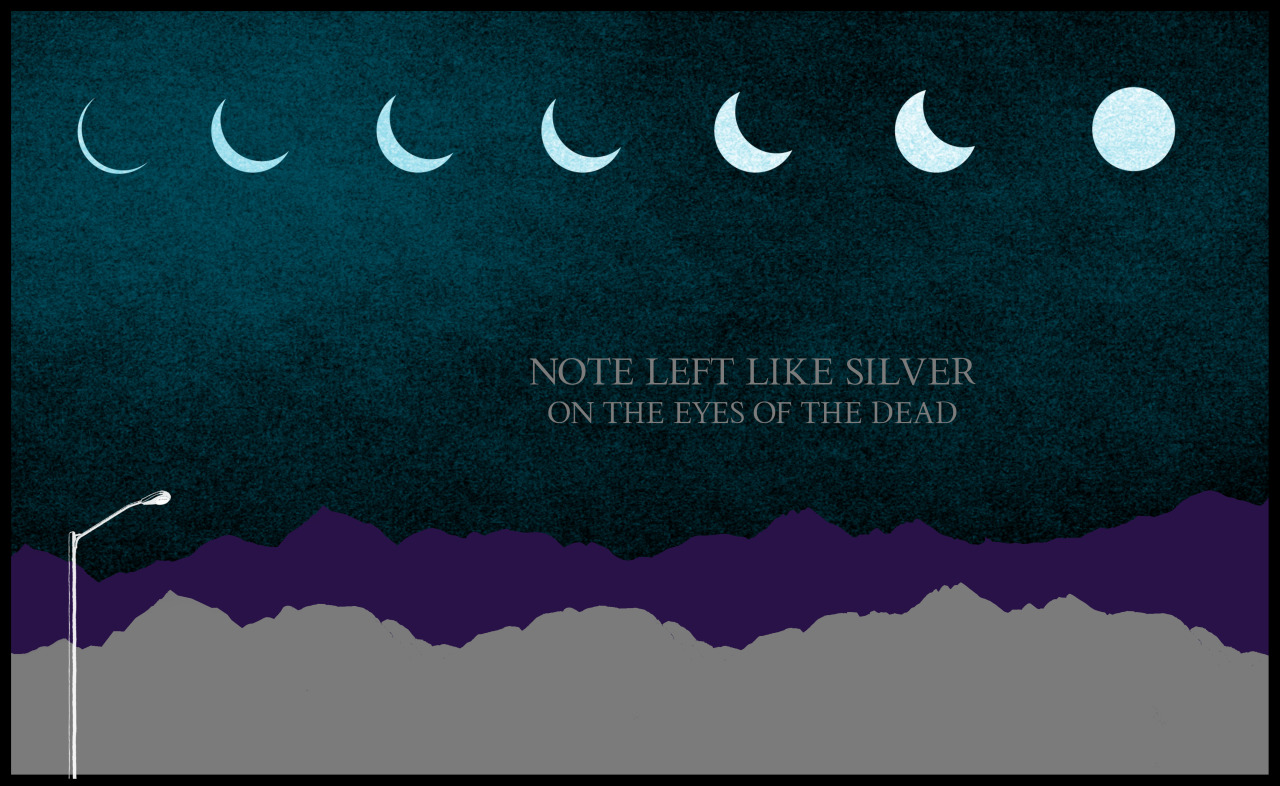
 RM: How did this project emerge, as in these thirteen poems together via Slash Pine Press?
RM: How did this project emerge, as in these thirteen poems together via Slash Pine Press?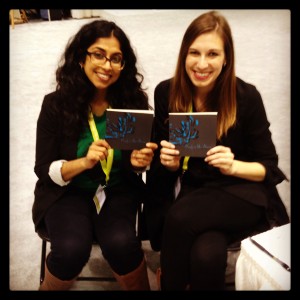
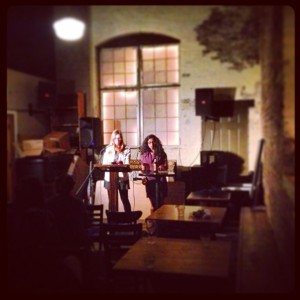
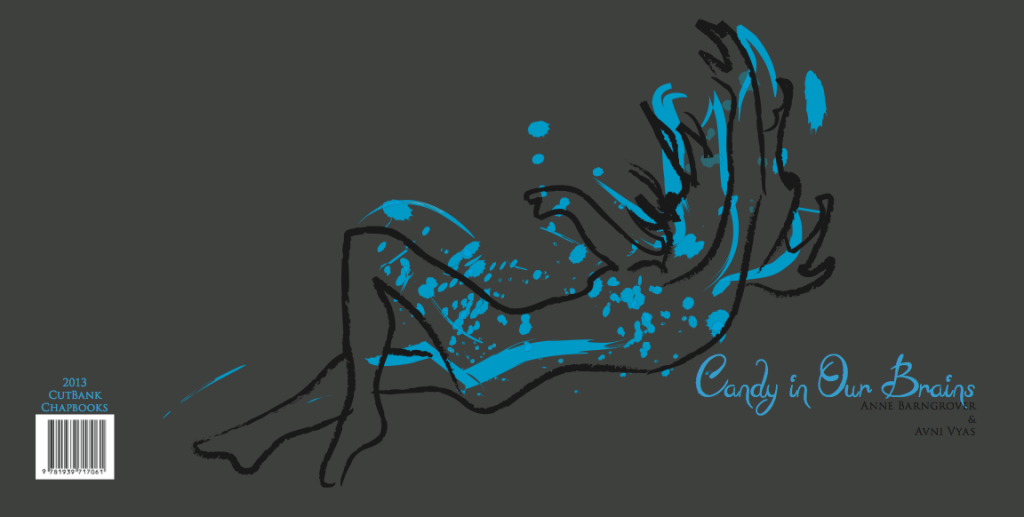
 We caught up with Dennis James Sweeney, winner of CutBank’s 2013 Chapbook Contest, to get some insight into the poetics and process of his poetry collection, What They Took Away. Lily Hoang calls it “an epic apocalypse of life stripped of tedium, of obtrusiveness” and a “magical miniature world showcas[ing] the terror of erasure and the wreckage of return.”
We caught up with Dennis James Sweeney, winner of CutBank’s 2013 Chapbook Contest, to get some insight into the poetics and process of his poetry collection, What They Took Away. Lily Hoang calls it “an epic apocalypse of life stripped of tedium, of obtrusiveness” and a “magical miniature world showcas[ing] the terror of erasure and the wreckage of return.”
 Interviewed by Allison Linville
Interviewed by Allison Linville Aryn Kyle: I feel like I need to start off by telling you that as I am writing the answers for this interview, I currently have $9.62 in my bank account (to be clear: the decimal point is not misplaced—nine dollars, sixty-two cents). I’m not offering this as evidence against my being “the dream MFA success story,” but as an attempt to give you a more holistic view of the reality.
Aryn Kyle: I feel like I need to start off by telling you that as I am writing the answers for this interview, I currently have $9.62 in my bank account (to be clear: the decimal point is not misplaced—nine dollars, sixty-two cents). I’m not offering this as evidence against my being “the dream MFA success story,” but as an attempt to give you a more holistic view of the reality. 
